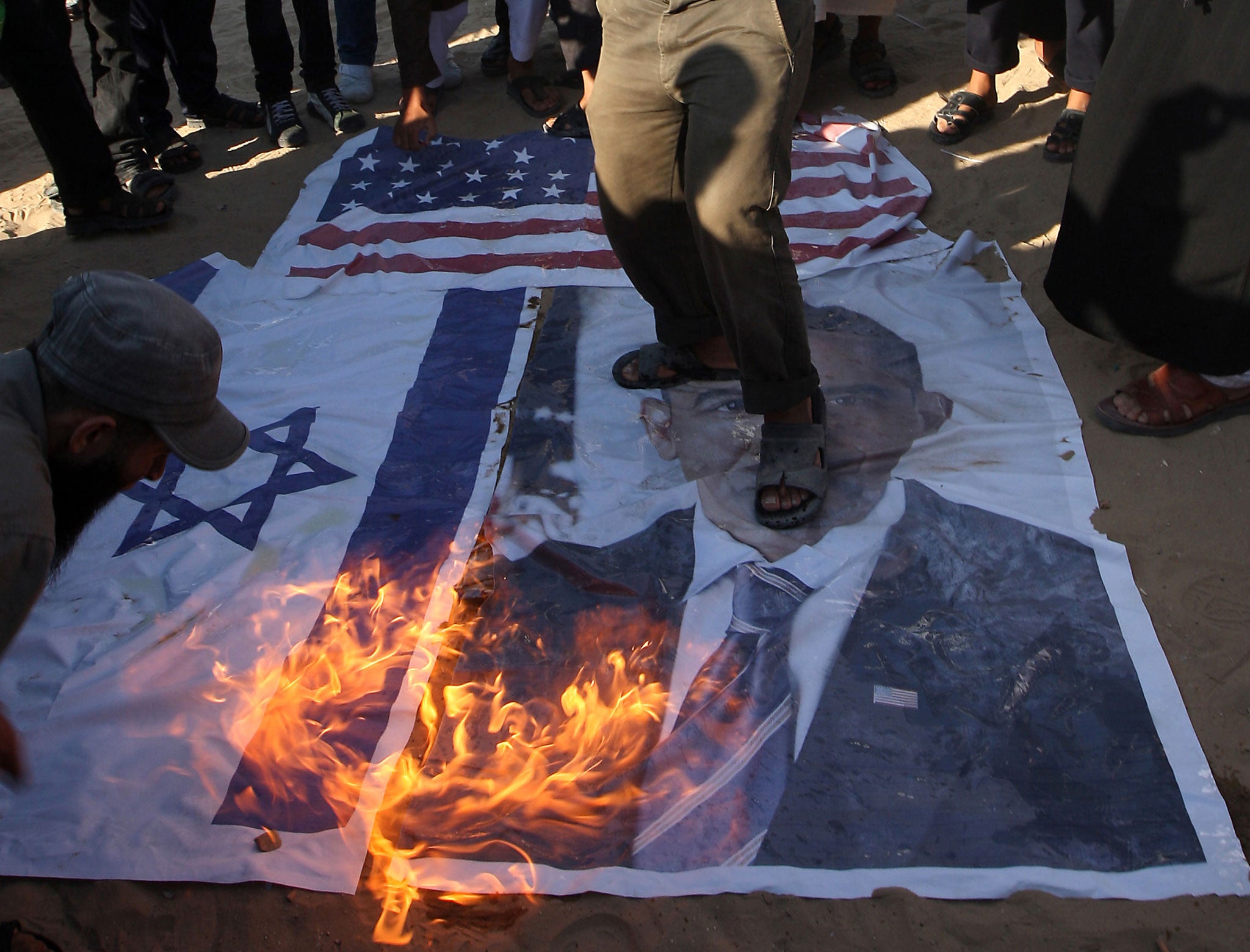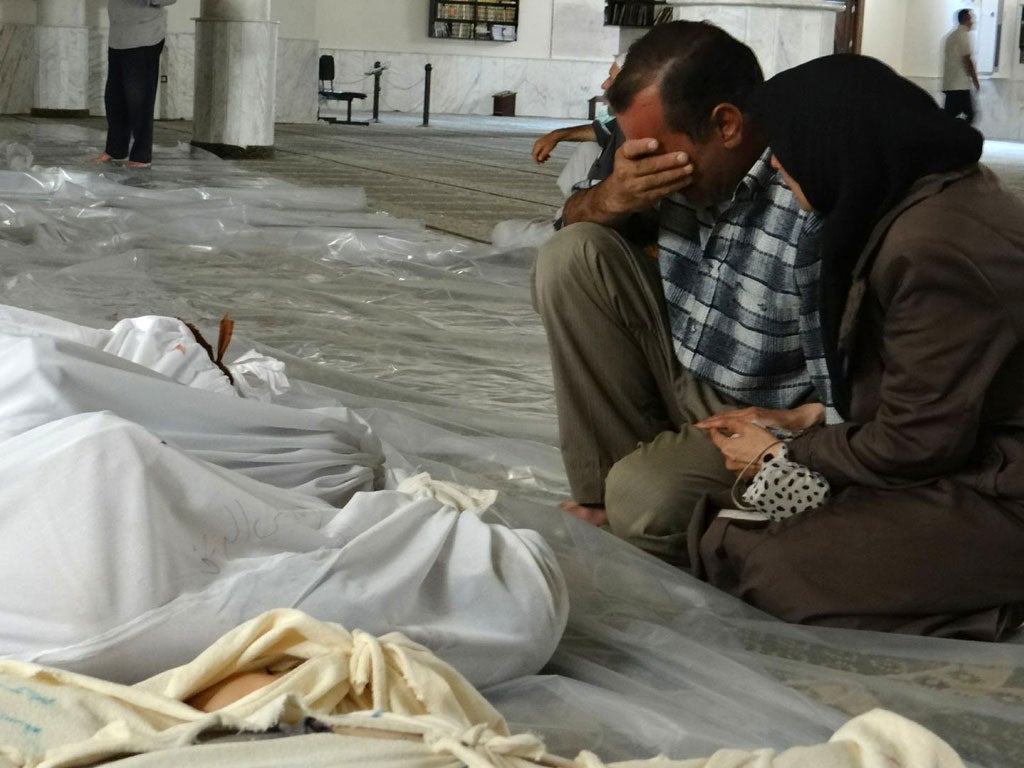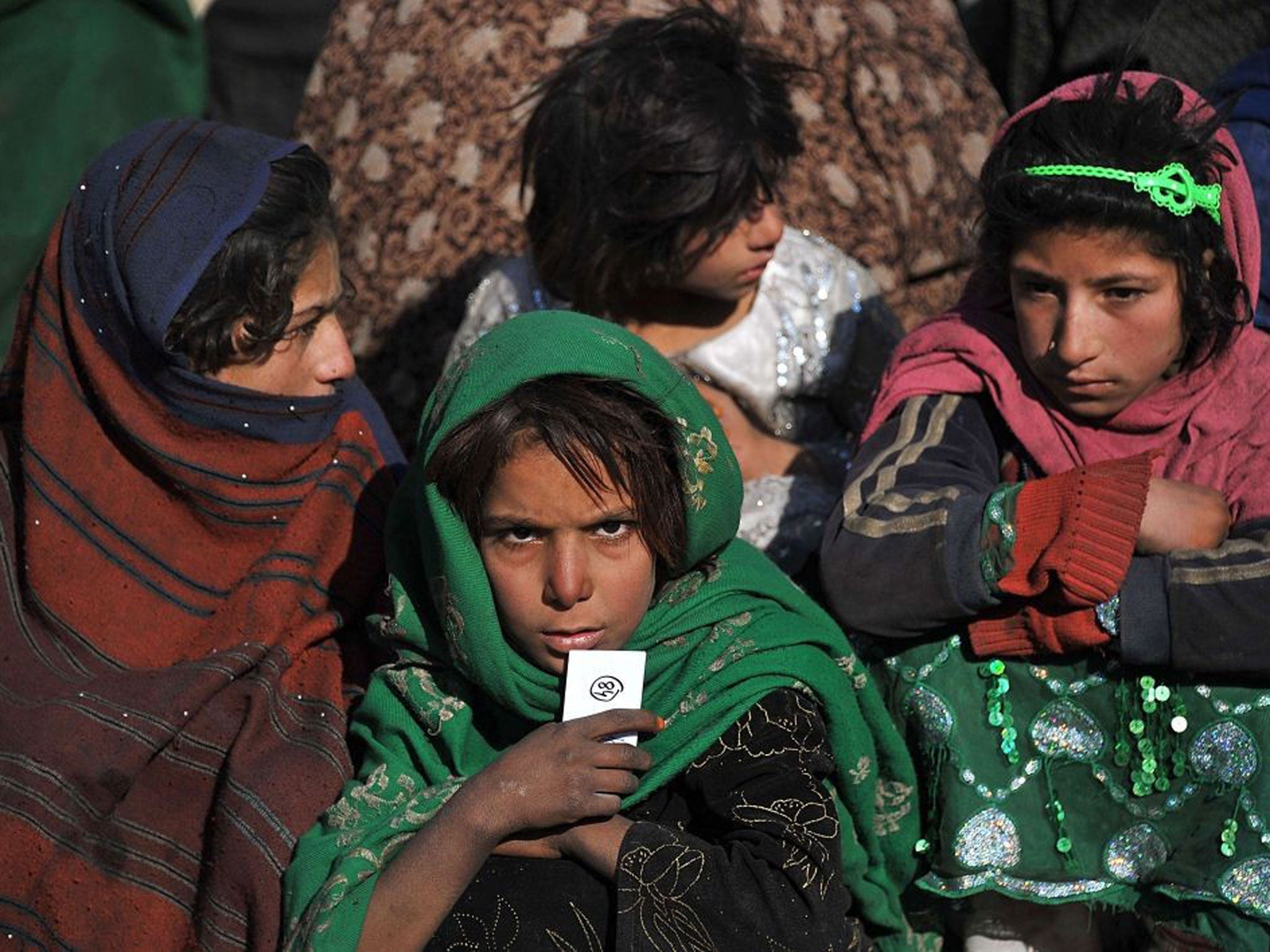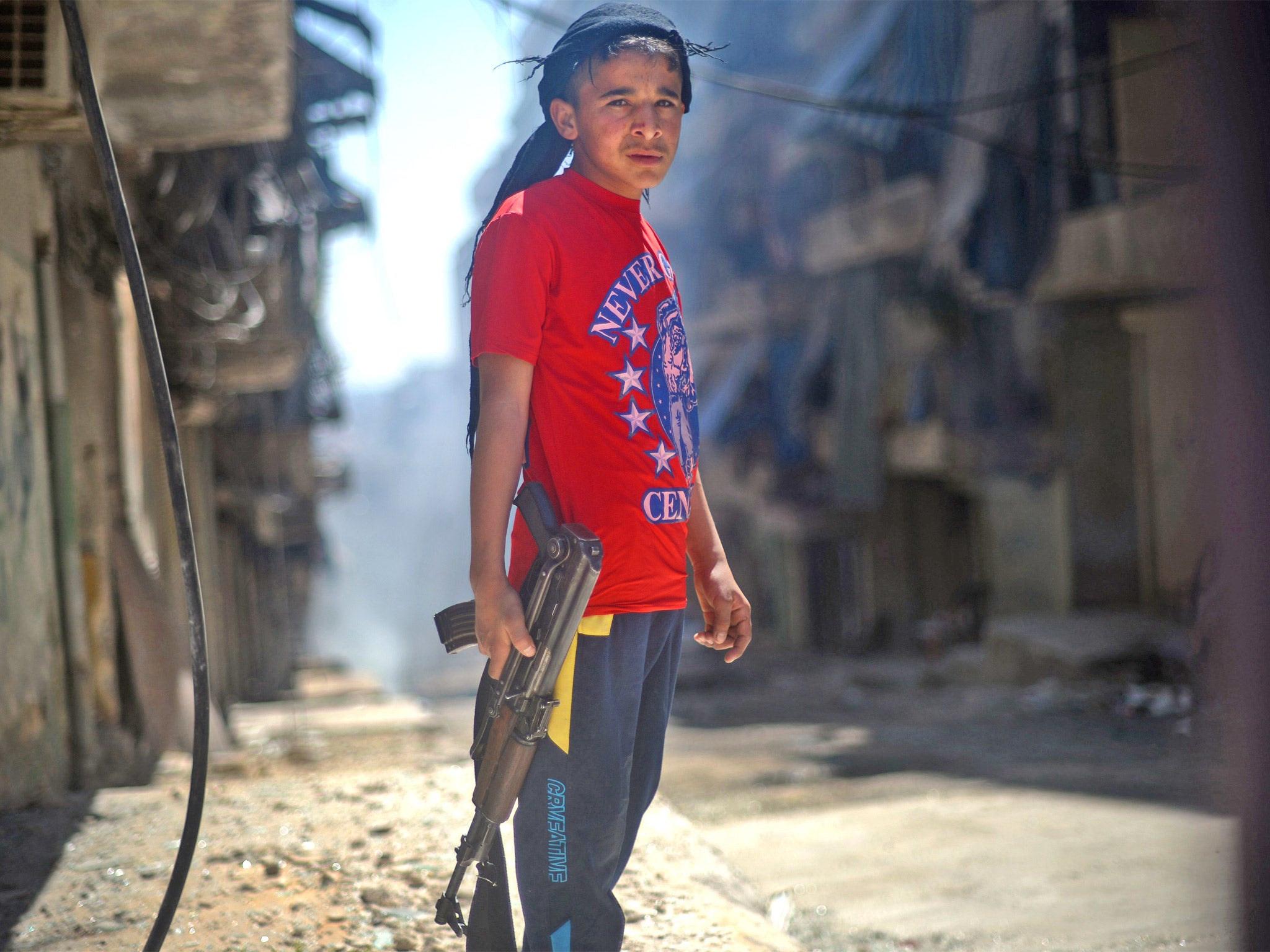Not nearly enough of the President's men: Obama's inaction is quietly devastating the Middle East
Was the 'Arab Spring' destined to become an 'Islamist Winter' with no end in sight?

Your support helps us to tell the story
From reproductive rights to climate change to Big Tech, The Independent is on the ground when the story is developing. Whether it's investigating the financials of Elon Musk's pro-Trump PAC or producing our latest documentary, 'The A Word', which shines a light on the American women fighting for reproductive rights, we know how important it is to parse out the facts from the messaging.
At such a critical moment in US history, we need reporters on the ground. Your donation allows us to keep sending journalists to speak to both sides of the story.
The Independent is trusted by Americans across the entire political spectrum. And unlike many other quality news outlets, we choose not to lock Americans out of our reporting and analysis with paywalls. We believe quality journalism should be available to everyone, paid for by those who can afford it.
Your support makes all the difference.While the Middle East is going through one of the most turbulent periods in history, America is governed by one of the most, if not the most, risk-averse post-war Presidents. The consequences of this unfortunate match are devastating, far-reaching and long-lasting.
The “Arab Spring” was always going to be a brutal contest between two major camps - secular progressives and religious reactionaries - and not an instant fix for the region’s deep-rooted socio-political, cultural and economic problems. Democracy is more than protests, elections and the sum of its institutions. But neither was the “Arab Spring” destined to turn into an “Islamist Winter” with no end in sight.
It has reached its bloody peak in Syria with the death toll now exceeding 130,000 - a conservative estimate with the actual numbers likely to be far higher.
On average, 5000 people are being killed every month and the civilian fatality rate is approximately 30 per cent or higher. The situation in the country is so bleak that it has almost produced as many casualties in less than three years than the war in Iraq, which many consider to be the US’s greatest foreign policy disaster in decades. The UN speaks of the worst refugee crisis since the Rwandan genocide of 1994 and, at current pace, Syria is likely to replace Afghanistan as the top refugee producing country during 2014, the first change since 1981.
Syria also constitutes the peak of Barack Obama’s contradiction-ridden Middle Eastern Odyssey of failures. His administration mishandled almost every major challenge it has been confronted with in the region, with the exception of contributing to the end of Gaddafi’s annihilationist campaign. But even in the case of Libya, it was not so much the President, but Hillary Clinton, Samantha Power and Susan Rice who lobbied for intervention to take place.
When in 2009 the Iranian people took to the streets in massive protest against the clerical regime and fraudulent re-election of Mahmoud Ahmadinejad, Obama remained silent. Now, his administration is engaging in controversial nuclear talks with the Islamic Republic, including the country’s new Defence Secretary, Brig. Gen. Hossein Dehghan, who was involved in Hezbollah's 1983 Marine barracks bombings that killed 241 Americans.

Yet again Obama left American foreign policy hanging in the wind at a crucial moment in time after the fall of President Hosni Mubarak. Egypt has always been a pivotal player in the region and the direction Egypt goes, the surrounding Arab countries tend to follow. Not only did Obama fail to use the leverage that the more than $1,5 billion in aid gives the US, but his administration lacked a clear and coherent policy altogether. It resulted in the isolation of Washington with almost no influence to shape events on the ground, as both sides of the revolution and counter-revolution blamed America for supporting the other. His infamous Cairo speech is no more than a distant memory and ratings for the US are lower now than they were during the Bush administration.
Obama’s short-term foreign policy thinking was once more revealed when he failed to negotiate the renewal of the 2008 Status of Forces Agreement (SOFA) between the US and Iraq. When troops were pulled out too quickly and over-hastily in December of 2011, despite repeated calls for caution from the generals, the peace in Iraq was once more lost. According to the Washington Institute for Near East Policy, “in 2010, the low point for the al-Qaeda effort in Iraq, car bombings declined to an average of 10 a month and multiple location attacks occurred only two or three times a year. In 2013, so far there has been an average of 68 car bombings a month and a multiple-location strike every 10 days”.

A similar fate awaits Afghanistan, where Obama’s strategy seems to be guided by a fixed timetable rather than any degree of success, at the expense of the heard-earned achievements and sacrifices made by Americans and Afghans alike.
But no other mismanagement has resulted in more bloodshed and a vicious spiral of violence than Syria. The West’s and the Arab League’s failure to stop the mayhem has empowered the most reactionary elements embroiled in the “Arab Spring”. Al-Qaeda has been resurrected from the ashes - less centralised but more powerful and dangerous than ever.
Al-Qaeda has re-emerged in Iraq under the name of the Islamic State of Iraq and al-Shām (the Levant). Under the leadership of Abu Bakr al-Baghdadi, they are seeking to seize control of the province of Anbar where nearly a third of US soldiers lost their lives. ISIS has already managed to gain control of parts of Fallujah, less than an hour away by car from Iraq’s capital Baghdad. Meanwhile, ISIS’s offshoot and former proxy organisation in Syria, Jabhat al-Nusra, is considered to be one of the most successful but also aggressive opposition groups. The al-Nusra Front has a strength of up to 10,000 fighters with mostly foreign backgrounds. Hezbollah’s support for the Assad regime has also given a boost to al-Qaeda’s partner organisation in Lebanon, the Abdullah Azzam Brigades, which are behind a series of recent deadly suicide attacks in an attempt to draw the country deeper into Syria’s civil war.
The spill-over effects from Syria are so severe and the impact of al-Qaeda and their affiliates so significant, that the violent eruptions in Syria, Iraq and Lebanon have to be seen as part of a single, regional conflict with the Sunni-Shia schism at its heart.

One can of course question what this has got to do with the Obama administration. After all, America has not started the war in Syria and did not cause or could have prevented the breakdown of the old order in the Middle East. But Obama’s broken promises - from not enforced red lines to a lack of support for moderate opposition groups - have shaped the outcome of the conflict significantly. Despite the administration’s careful attempts not to get involved, they made themselves a vital player the moment Obama declared his red line policy and even more so when the red line was repeatedly crossed, culminating in various chemical weapons attacks against civilians. Inaction is a form of action, sometimes with more devastating consequences than involvement.
Al-Qaeda and its affiliates, more than any other party, drew on the weaknesses and miscalculations of the US and the West in general. After three years of fighting, Islamists and jihadists are the only winners in Syria’s dirty war. President Assad has lost all legitimacy; the Free Syrian Army is defeated, abandoned and demoralised; Washington has lost almost all credibility and influence over the situation with no reliable partners left to negotiate with; and Geneva II is bound to end in yet another disastrous failure and embarrassing exposure of incompetence and illusion.
Gone are the days when Washington called for the end of the Assad regime. The Obama administration has manoeuvred itself into a corner where President Assad, the man John Kerry not so long ago compared to Adolf Hitler, now presides over the least extremist fraction amongst mass-murdering criminals and terrorists.
Join our commenting forum
Join thought-provoking conversations, follow other Independent readers and see their replies
Comments